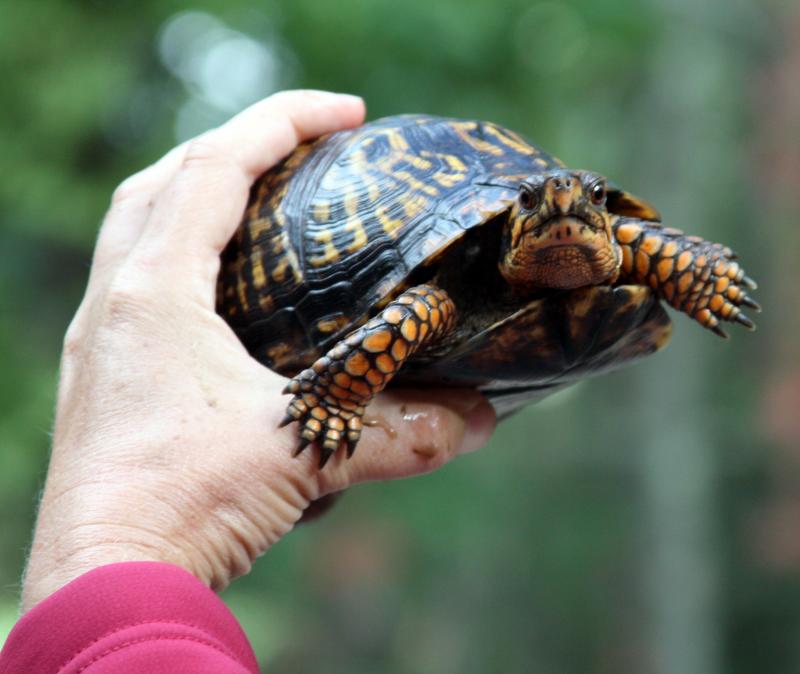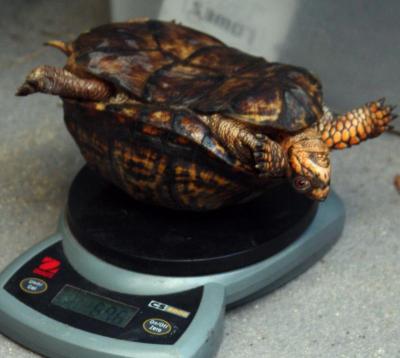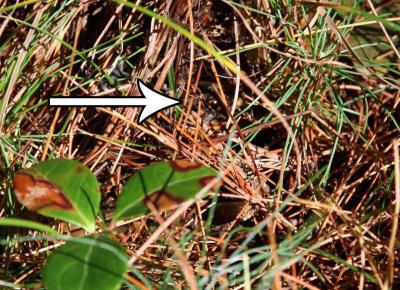Homeless turtle finds home in Great Neck Wildlife Sanctuary

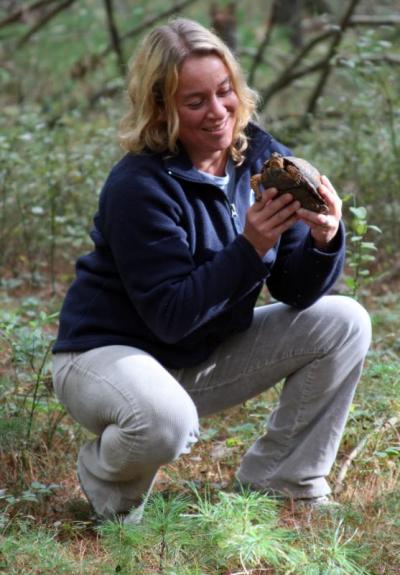
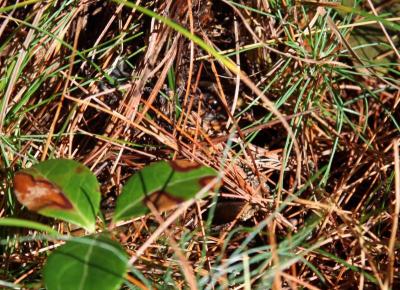
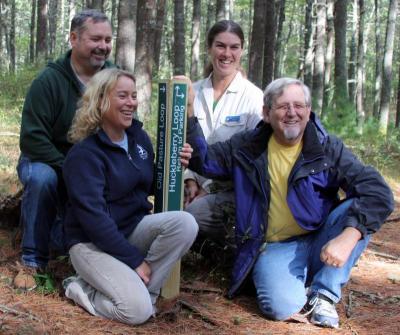
Wareham welcomed the newest resident of Great Neck on Monday, October 3. She's got a hard shell and is fortunate to have survived life on the streets of New Bedford.
She's a 35-year-old Eastern box turtle - a 1.5 pound beauty rescued by a concerned citizen who, while walking his dog, found the turtle wandering down Rockdale Avenue in the Whaling City.
When the citizen headed into nearby Buttonwood Park to drop the turtle off, he ran into Gina Purtell, who serves as Allens Pond Wildlife Sanctuary Director for Mass Audubon, a nonprofit which aims to protect nature throughout Massachusetts.
This encounter was the turtle's lucky break.
Westport-based Allens Pond has a partnership with wildlife expert and Marion resident Don Lewis, who is affectionately known as "The Turtle Guy."
Purtell took the turtle back to the Allens Pond Wildlife Sanctuary, where she, Lewis, and other Mass Audubon employees developed a strategy for the reptile's return to a safe habitat.
You see, had the turtle been placed in Buttonwood Park, "she'd be walking down the center of New Bedford" again, Lewis explained.
It's unclear where the turtle came from, but because box turtles are territorial by nature, she surely would have attempted to return whatever place she called "home," Lewis said. He noted that Eastern box turtles are considered a "species of special concern" in Massachusetts, which is just below "threatened" and "endangered" on the list.
So the turtle couch-surfed - or rather, tank-surfed - at the Allens Pond sanctuary for about eight weeks. She snacked on snails and slugs and even enjoyed some cherry tomatoes.
Lewis and the Mass Audubon folks were just waiting for the right time - the beginning of October - to introduce the turtle to her new home: Mass Audubon's Great Neck Wildlife Sanctuary, located off of Great Neck Road.
Because Eastern box turtles are cold-blooded, as soon as the weather cools down, they burrow and sleep - a process called "brumation."
By moving the turtle into her new home at about the same time she'll be preparing to snooze for the winter, Great Neck will likely become "home."
"Our hypothesis is that she will have 'reset' herself" - and her territorial instinct - by the time she wakes up in April, Lewis said.
On Monday morning, Mass Audubon's Jennifer Costa and Lauren Miller-Donnelly met Lewis and his wife (and fellow wildlife expert) Sue Wieber Nourse at the Great Neck Wildlife Sanctuary.
Lewis and Nourse got all of the little lady's stats for record-keeping purposes and determined that she's very healthy and strong and is well-prepared as far as nutrition and hydration goes to survive the winter in her new habitat, which Lewis calls a "perfect box turtle home."
The team marked the turtle so they can identify her when checking on her in the future. They brought her about a quarter-mile into the woods and even took GPS coordinates so that locating her later on will be easier. (Remember - she's very territorial. She'll likely stay within 100 to 500 yards, Lewis said.)
Everyone said their good-byes, which was a little tough for the turtle's former Mass Audubon roommates who had cared for her over the past two months.
"Who's going to hiss at me when there's no water?" joked Jennifer Costa, Allens Pond Wildlife Sanctuary Volunteer and Outreach Programs Administrator.
Much to the delight of the rescuers, the turtle had already begun to burrow in to her new home, covering herself with pine needles and other brush, after what couldn't have been more than five minutes.
And so the homeless turtle found a home in Wareham. Lewis and Nourse said they plan to check on her in the springtime.
"This is like giving her a second chance at life," Lewis said, noting that turtles live longer than turtle-researchers. "She could live for another 100, 150 years!"



